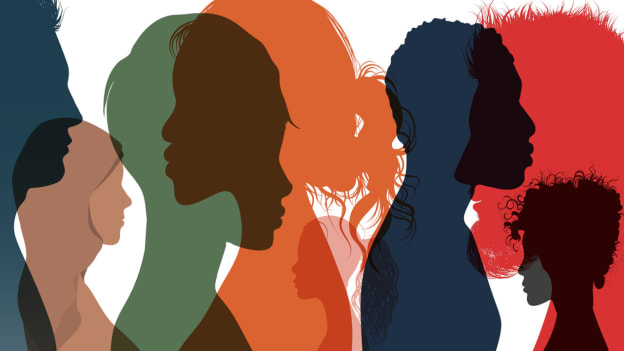DEI: What’s in it for the business?

As businesses recover from the pandemic’s unexpected nature, one thing is abundantly clear: there is an ever-increasing need for Diversity, Equity, and Inclusivity (DEI) in the workplace, not only because it is the right thing to do but also because it affects businesses positively. But let’s not mistake the intent here - DEI has been a concern for businesses as far back as 1987, and with the way businesses are shaping up across the world, what was once considered a luxury is now an imperative. This article closely explores what DEI means and what it can influence from a business standpoint.
How do we understand Diversity, Equity and Inclusivity?
One way to understand DEI is through the meaning of the individual terms. Diversity makes a call to give representation to different voices, cultures, and perspectives, while equity makes a claim to opportunities in such a way that multiple backgrounds are acknowledged.
Inclusivity is concerned with making sure that there is action beyond words - that in fact the people that are seeking representation and opportunities get a seat at the table.
But DEI goes beyond the meanings of the individual terms. As a vehicle of cultural change, it stands for an openness towards the multiple futures that can be realized. It is not a tokenistic move that merely wishes to account for certain quota being filled out - far beyond that, it is actually a gesture that acknowledges historical wrongdoings and inequitable circumstances in the present and wishes to create a future that promises dynamic and sustainable growth.
What can a business achieve through DEI?
Although DEI stands for a progressive movement within businesses today, it also signals acute business sense.
For example, discrimination against the black community has cost the US $16 Tn, and that’s just one of the ways in which not including a diverse workforce not only affects the bottom line but actively harms it in the long run.
Anti-Black racism alone has cost the US $16 trillion because of discrimination. This drastic amount is due to discriminatory lending practices, income lost due to wage disparities, housing credit, and lifetime income lost from discrimination in higher education. This is completely unacceptable and it is imperative that we make immediate changes such as addressing the wage gap and promoting top-level diversity within organizations.
Moreover, as the pandemic has brought close attention to other factors of a business beyond the bottom line, there are yet other fronts on which DEI can deliver. Some of these areas are:
- Employee engagement and trust in the company are significantly improved when there is a pointed focus on DEI
- A management that has DEI representation earns up to 38% more revenue than one that doesn’t
- A workforce with DEI leaders is 17% more likely to be high-performing according to one study and 21% more likely to be highly profitable according to another one
And that barely scratches the surface! As more and more companies turn towards DEI with the expectation that there is a definitive competitive advantage, more and more studies are likely to emerge that detail various benefits that can be availed through this practice.
The key for most companies going forward is not whether they implement DEI or not - this part, as we have seen, is not optional - but rather how thoroughly they are able to integrate it into the DNA of their organization.
This is primarily because, even though it was believed to be so for the longest time, DEI is not simply an HR issue, but something that affects the entire company.
With benefits that reach far beyond the scope of HR, DEI isn’t an isolated aspect that companies can focus on only through HR. After all, the implicit undertaking of DEI is not just people but the context within which a team itself functions - and on that level, it is a cross-functional concern in any organization. Two separate studies have verified this fact. The first states that there is significantly more potential to be innovative and therefore drive higher ROI when DEI is a key concern from the outset. The second study states that there is as much as a 35% chance for companies that focus on DEI to outperform their competition that don’t.
A definitive path towards the future
No matter the context or the use case, DEI comes out on top, and as a result, so does the organization. DEI is therefore not an HR-only concern, but it is certainly a priority for the HR function to make sure that it gets implemented at the earliest. Every step that a company takes without the inclusion of multiple voices and perspectives is a potential loss for the company since there are people who are not being reached out to and there are lives that can yet be impacted. DEI considers the past, works in the present, and creates a foundation for the future.
















